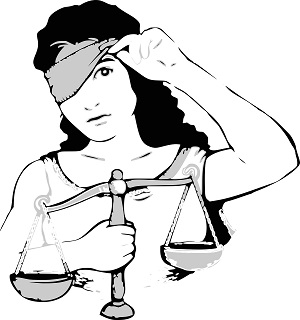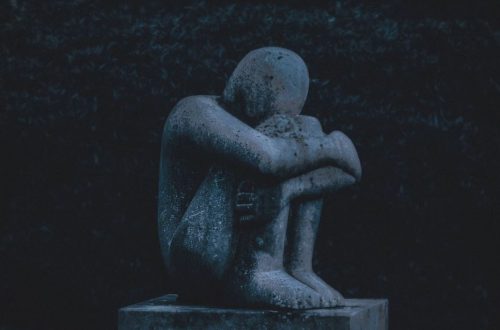Christianity Today published an opinion piece on Thursday by Tish Harrison Warren addressing the aftermath of the insurrection at the Capitol. There were a handful of passages in her essay that I believe are worthy of some reflection and critical feedback. Warren writes:
For me, the worst part of yesterday’s insurrection is how it represents an utter failure in the American church. This anti-epiphany reveals the horrid outgrowths of Christian nationalism, faulty spiritual formation, false teaching, political idolatry, and overriding ignorance.
Though it saddens me deeply, it must be clearly admitted: Yesterday’s atrocity was in large part brought to us by the white, evangelical church in America.
Further,
The responsibility of yesterday’s violence must be in part laid at the feet of those evangelical leaders who ushered in and applauded Trump’s presidency. It can also sadly be laid at the feet of the white American church more broadly.
There is much more in her column than I have reproduced here, and she makes some good points along the way. To be sure, no one needs to be giving evangelicalism a clean bill of health. We have problems. Big ones in my view. And she identifies some of them. But for the purposes of this discussion, I want to focus on the lines above, which I thought were significant enough to critique yesterday on social media:
This seems to be the hot-take from the progressive set, but may I suggest that blaming “white evangelicals” for yesterday’s insurrection is bearing false witness and not going to help anything at all. https://t.co/ruZpXa8zfo
— Denny Burk (@DennyBurk) January 8, 2021
The response to this social media post has been vociferous, some of it thoughtful and some of it not so much. I’ve responded to a number of folks privately about it, but perhaps it might be helpful to offer a response to some of the commenters here.
I don’t know Tish Harrison Warren personally, but I have friends who do. All of them are eager to say that she is perfectly delightful, and I believe them. I think it comes across in her writing. So I mean no disrespect toward her personally with the “progressive set” label. Having said that, I do regard egalitarians and those with affinities toward “Social Justice B” (to use Thaddeus Williams’s terminology) to be on the progressive end of the evangelical spectrum. If there weren’t character limits, I probably would have used the longer phrase “progressive end of the evangelical spectrum” in the tweet above. But I ended up using the shorthand because I thought people might understand that one can be an evangelical and still have some progressive views on certain issues.
On this issue at hand, there is an overlap between progressive evangelicals and progressives more generally. Both groups are coalescing around an identity politics narrative to blame “white evangelicals” or “white Christians” or “white churches” for the January 6 insurrection. This narrative is unjustified and represents a form of racial partiality, which scripture forbids (e.g., James 2:9). For this reason, these kinds of racial generalizations are not only wrong but are going to further divide evangelicals and the country. Our moment calls for holding the guilty accountable for their actions (both the insurrectionists and those who incited them) and for healing festering divisions. I write this because I am really concerned about the healing part. Such healing will require a heavy dose of Lincoln’s “with malice toward none, with charity for all.” Racial recriminations against Trump voters are not going to get us there.
Perhaps some evangelical Trump voters feel some regret about their vote given what happened on Wednesday, but I would not in any case impute to them moral culpability for what happened on Wednesday. There is moral agency in voting, but perhaps there isn’t a straight line between voting and moral culpability for every bad action that a candidate commits. If a candidate campaigns on promoting abortion, then his voters would be morally culpable for the pro-abortion policies the candidate enacts after elected. But that is not a very good analogy to what happened on Wednesday. The President didn’t campaign on insurrection, and many of his voters are genuinely surprised and horrified that it happened. So it’s very difficult to make a moral equivalence between the two scenarios when all horrid ends cannot be foreseen in a voting booth. Yes, there is moral agency in voting, but not direct and equal culpability toward every foolish end a candidate may pursue. (For a really helpful guide on the ethics of voting, I recommend Jonathan Leeman’s short article from last year.)
The bottom line I’m driving at is this. We need to beware of the spirit of the age which tends to adjudicate guilt/innocence based on identity categories rather than on biblical principles of justice. The former will lead you into a quagmire of ethical absurdities and injustices in which you attribute guilt/innocence simply on the basis of the color of one’s skin or on the basis of their religion. And this is something that we must never do if we are to remain faithful to scripture.
For many of us, these kinds of errors implicate core confessional commitments. My own church’s confession of faith teaches that…
God hath appointed a day, wherein He will judge the world by Jesus Christ, when everyone shall receive according to his deeds; the wicked shall go into everlasting punishment; the righteous, into everlasting life (emphasis mine)
This statement reflects the consistent biblical teaching that God’s righteous judgment will be according to what we have done, not according to what others have done (e.g., Rom. 2:6; 2 Cor. 5:10; Rev. 20:12-13). Biblical justice cannot be reconciled with idea that guilt accrues to someone on the basis of their skin color. The latter is sadly a common feature in the way many people talk about race and justice. Christians must resist this popular error.
I said this in my last post, but perhaps it bears repeating. There will be a temptation for recriminations in the days ahead. I advise caution on these grounds—especially to those who have opposed the President all along. If you are viewing insurrection-day as your vindication-day and are eager to put your political opponents in their place, I don’t think you are going to help heal rifts that need to be healed. Charity would have us resist the temptation to impute all of the President’s sins to every single one of his voters. While there are sycophants and enablers and other bad actors who will have to answer for themselves, countless others who voted for Trump never anticipated any of this and abhor what unfolded in the capital on Wednesday. Almost everyone is deeply offended by the assault on the Capitol. Let’s assume the best, not the worst of each other.






